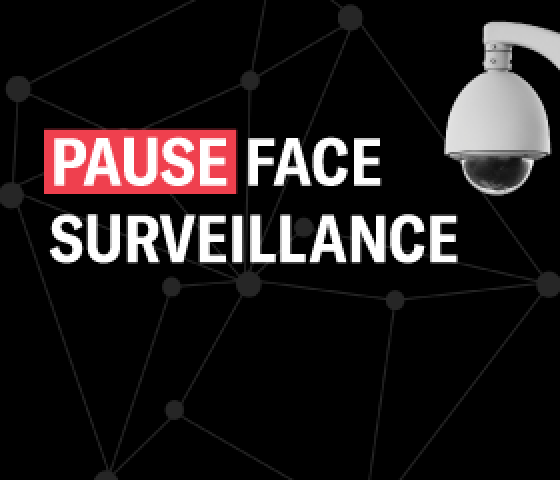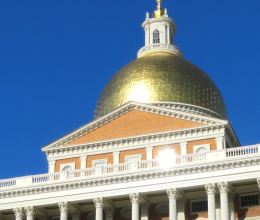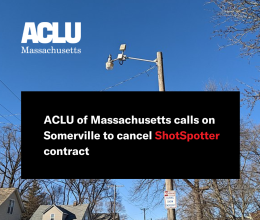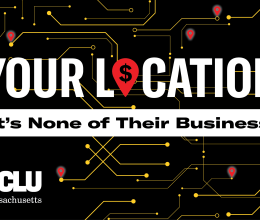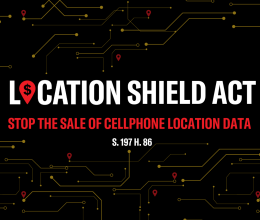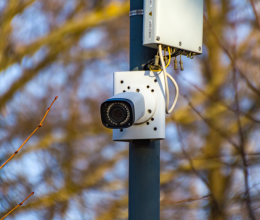In packed hearing rooms at the State House, law enforcement, educators, tech business leaders, and other advocates on Tuesday called on the legislature to press pause on government use of face surveillance technology.
During the hearing of the Joint Committee on the Judiciary, dozens of advocates—including the ACLU of Massachusetts, Suffolk County District Attorney Rachael Rollins, Boston Teachers Union, tech company Cortex, and researchers from MIT and Georgetown University—testified in strong support of statewide moratorium on the government’s use of the technology (S.1385/H.1538).
The legislation, sponsored by State Senator Cynthia Creem and State Representative David Rogers, will establish a statewide moratorium on government use of face surveillance and other biometric screening technologies until the legislature imposes checks and balances to protect the public’s interest.
“Face surveillance threatens to create a world where people are watched and identified as they attend a protest, congregate at a place of worship, visit a medical provider, and go about their daily lives,” said Kade Crockford, director of the Technology for Liberty Program at the ACLU of Massachusetts. “Massachusetts has the opportunity to lead the way, and ensure that advancing technology keeps pace with our rights. Massachusetts voters have spoken loud and clear: We must press pause on this technology until there are protections in place.”
Take action to pass the Face Surveillance Moratorium
In June, the ACLU of Massachusetts launched the “Press Pause on Face Surveillance” campaign to build awareness about the civil liberties concerns posed by face surveillance and the need to pass a statewide moratorium on the government’s use of the technology. A recent poll shows 79 percent of Massachusetts voters support a moratorium on government use of face surveillance technology, and 91 percent think the government should not use the technology unless it is subject to regulation.
More than 50 organizations back the moratorium and ACLU campaign. Supporting organizations include Black Economic Council of Massachusetts, Charles Hamilton Houston Institute for Race & Justice, Committee for Public Counsel Services, League of Women Voters of Massachusetts, Massachusetts Association of Criminal Defense Attorneys, Massachusetts Law Reform Institute, Massachusetts Library Association, Jane Doe Inc., Massachusetts Transgender Political Coalition, and the New England Area Conference (NEAC) of the NAACP.
